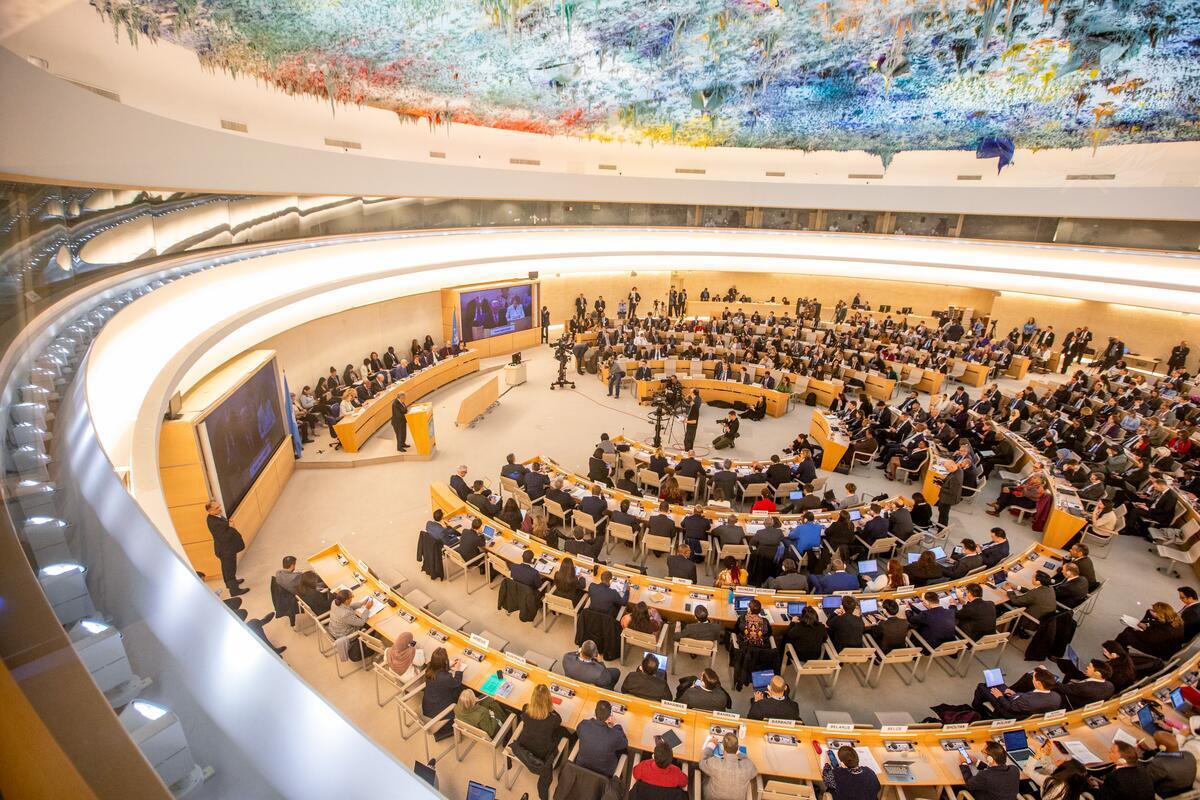
UN Calls on UK to Take Torture Seriously, Adopts Recommendations Endorsed by REDRESS
By Chris Esdaile, Senior Legal Advisor and Olivia Dehnavi, Advocacy Officer
The UN Human Rights Committee (HRC) has made a series of recommendations addressed to the UK, following its review of the UK’s compliance with the International Covenant on Civil and Political Rights (ICCPR). These recommendations include several issues of concern which REDRESS highlighted in its February 2024 submission to the process.
The Committee echoed REDRESS’s concern over the UK’s involvement in torture and rendition, urging a prompt and impartial investigation into allegations of collusion. Numerous international bodies (not least the European Court of Human Rights) have urged European States to conduct effective investigations into allegations of torture and other ill-treatment, in line with their international legal obligations.
The issue is relevant to two REDRESS clients, Mustafa al-Hawsawi, one of the 17 prisoners classed as ‘high-value detainees’ within the CIA programme, where the UK’s Investigatory Powers Tribunal continues to investigate allegations that UK intelligence agencies facilitated or conspired with US authorities in his torture or ill-treatment, and Jagtar Singh Johal, a British national who has been arbitrarily detained in India since 2017, where accusations have been made that UK intelligence agencies tipped off Indian authorities about him before his abduction and torture by Indian police.
While the HRC did not address specific cases, it emphasised the need for officials in relevant operations to have “unambiguous guidance to cease engagement where there is a risk of torture, unlawful killing, or extraordinary rendition” since the existing guidance “does not mandate an absolute prohibition on such activities” (para. 26). The HRC recommended that the UK Government ensure that all investigations and proceedings regarding the involvement of British officials in torture, unlawful killings and extraordinary renditions are carried out thoroughly, independently and within a reasonable period of time, and that those found responsible are held accountable through public proceedings.
The HRC also highlighted the importance of non-refoulement, with the Committee expressing grave concerns about recent legislative developments, particularly the Illegal Migration Act 2023 and the proposed Safety of Rwanda (Asylum and Immigration) Bill. We had argued in our submission to them that the UK Government must be urged to adhere to its international legal obligations including the absolute prohibition on torture, and the ban on refoulement. This call built on our recent advocacy before the UK Parliament.
The HRC expressed their “regret” that the UK Government was pursuing their legislative and policy agenda on these issues “despite the ruling of the UK Supreme Court that the arrangement would not be compliant with international law, particularly the prohibition of refoulement” (para. 40). The HRC recommended that the UK Government withdraw the Safety of Rwanda (Asylum and Immigration Bill), or repeal the Bill if passed.
In addition, the HRC highlighted accountability for past human rights violations, expressing concern over the adoption of the Northern Ireland Troubles (Legacy and Reconciliation) Act 2023 despite the widespread warnings from domestic and international actors that it would be in breach of the Good Friday Agreement and the UK’s international human rights obligations (including the absolute prohibition of torture). The Act introduces a conditional immunity scheme for serious violations of human rights and weakens powers of investigation, therefore obstructing victims’ right to truth. The HRC recommended that the Act, which is currently subject to a legal challenge brought by Ireland under the European Convention on Human Rights (ECHR), be repealed or reformed.
The HRC also expressed regret at the UK’s lack of action over war crime allegations against British soldiers in Iraq, particularly with regards to the Overseas Operations Act 2021. The Committee called for thorough investigations and sanctions for violations committed by British officials and armed forces members, regardless of time limitations.
The definition of torture was also a matter of the Committee’s concern. It highlighted the Criminal Justice Act 1988, which maintains a defence for individuals charged with torture under certain conditions. We have consistently argued that torture is never acceptable, and UK legislation must focus on preventing torture in all circumstances.
In addition, the HRC expressed concern about the possibility of the UK withdrawing from the ECHR, which would “render individuals without options for the effective protection of their rights and freedoms” (para. 6).
REDRESS is encouraged by the comprehensive range of recommendations made by the HRC to the UK in their recent report. We hope to see the UK Government implement the recommendations, along with other important changes necessary to uphold the torture ban, such as reforming the legal framework for universal jurisdiction. We look forward to continuing our engagement with the UK Government to ensure it respects human rights under the ICCPR.
UN Photo/Elma Okic
